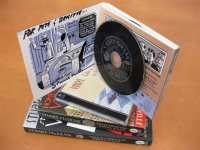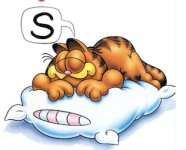TK4
Well-known member
Opinion by Christopher Dummitt (National Post)
I have a Christmas confession: there’s something I love about the CBC.
To some National Post readers, this might seem like the equivalent of saying Al-Qaeda had a few good ideas. But hear me out. At this festive time of the year — in the spirit of peace and love — let me make the case for why one specific program that used to air on CBC Radio deserves our affection.
I’m talking about Stuart McLean’s The Vinyl Café that ran from the mid-1990s through to 2015. It was an homage to old-school radio variety shows of the 1930s and 40s — a hodge-podge of music and stories that, year after year, increasingly centred on the fictional world of one Toronto family.
The stories featured Dave and Morley and their two children Sam and Stephanie. Dave ran a record shop called The Vinyl Café with the motto: “We may not be big, but we’re small.” Dave was the whimsical, kind-hearted father figure who couldn’t help but get himself into the most incongruous and disaster-prone scenarios. Over the years, we met their neighbours and friends who were a cast of the kinds of Canadians we could recognize in our own lives — from Kenny Wong who owned the neighbourhood restaurant “Wong’s Scottish Meat Pies” to the Martha Stewart-like neighbour Mary Turlington. McLean rose to CBC fame on Peter Gzowski’s Morningside program and then slowly developed The Vinyl Café into the much-loved national institution that it became — touring the country for live shows, telling stories, and drawing in musicians and audiences in towns big and small.
As a professor in the world of academe, I felt I could only reluctantly ever admit to colleagues that I loved The Vinyl Café. I knew I was supposed to look askance at its down-market populism.
Yet, even as I read Virginia Woolf, Thomas Hardy, and pushed my way through overrated depressive Russian novels, learning to appreciate the early James Joyce (though no one will ever make me read Ulysses — anyone who tells you it is great fiction is a masochist), I still found myself coming back to The Vinyl Café every Sunday at noon. It was a quasi-religious story hour of meaning and belonging. By the mid-2000s, I had started my own family, and Sunday Vinyl Café listening sessions involved making sure the pancakes and bacon were on the table so the whole family could listen as we ate. There was a lot of shouting and shh-ing and spilled milk. Sometimes, we could even listen to the program.
Every couple of years, the travelling show came to the little city of Peterborough where I live. This made for the perfect birthday or Christmas gift for my mother — a mother/son date. When my oldest child was old enough (was six too young?) I took her along too.
Then, in 2015, came the news that Stuart McLean had cancer. It all seemed to happen so quickly and he was suddenly gone. The show was no more.
The saving grace of it all were the recordings — especially at Christmas time. The CD box set of stories helped keep The Vinyl Café alive, and later, it was picked up by Apple Music and YouTube. Each year, I came back to the Dave Christmas stories. For it was here that the genre most artfully blended the humorous and the saccharine, the mischievous fun, and the earnest appreciation of the little things in life.
Even those who know almost nothing about the show might have heard of the famous “ Dave Cooks the Turkey ” episode, where Dave puts himself in charge of cooking the family turkey, but doesn’t realize that he was supposed to buy a turkey in the first place. There’s “ Polly Anderson’s Christmas Party, ” where Dave mistakenly gives the kids at the party the eggnog bowl with the rum in it — so while the parents are finding the occasion all quite stiff, the kids are having a whale of a time. There are plenty more. When you’re finished reading the column — go and listen. You’ll feel better for it.
The point is that these stories — and this show — had a way of drawing you in. They were deceptively well-written, with telling observations even Proust might have admired. Most importantly, they were written with heart, and an evocative way of finding the depth of meaning in small struggles.
Despite the diversity of those living in Dave and Morley’s world, The Vinyl Café told us that people shared a common humanity, that we are all perfectly imperfect.
They are, in other words, something that the current version of the CBC — with all of its focus on diversity and the irreconcilable differences of “communities” and “identities” — with its incessant concern about not speaking for someone else — about cultural appropriation — and separating out Indigenous ways of knowing — seems to have forgotten.
Dave was something of a walking microaggression. Yet, you knew that his heart was in the right place — that he would see and want to connect across our differences.
This is why I was so happy last year that my eight-year-old, who was too young to have ever heard the show live, let alone gone to one of the concerts, began to fall in love with The Vinyl Café.
It started small. Trying to clean up after dinner I’d turn on a story and say “Here: listen to this.” It worked. Pretty soon he started asking himself if he could listen to one of those “vinyl stories.” We worked our way through everything on Apple Music once and then twice. Then we turned to YouTube. His siblings would groan as we’d get into the car and he’d ask for a Vinyl Café story. But sometimes, I’d notice that when we came to the funny bits, the teenagers, even with their headphones on, would chuckle along too.
That’s why even though Stuart McLean is now long gone — and even though the current leadership at CBC seems tone-deaf to any Canadian who doesn’t share a narrow point of view — it’s worth going back and listening to The Vinyl Café.
Who knows, maybe someone, somewhere in one of the expensive C-suites at bureaucratic headquarters might be listening. Maybe they’ll tune in as Dave cooks the turkey this Christmas and realize that a future for the CBC might mean, at least in spirit, going back to a time when the broadcaster thought what matters most is what draws us together — even if what draws us together turns out to be a story about an inept drunken dad and a brutalized “grade B” turkey.

I have a Christmas confession: there’s something I love about the CBC.
To some National Post readers, this might seem like the equivalent of saying Al-Qaeda had a few good ideas. But hear me out. At this festive time of the year — in the spirit of peace and love — let me make the case for why one specific program that used to air on CBC Radio deserves our affection.
I’m talking about Stuart McLean’s The Vinyl Café that ran from the mid-1990s through to 2015. It was an homage to old-school radio variety shows of the 1930s and 40s — a hodge-podge of music and stories that, year after year, increasingly centred on the fictional world of one Toronto family.
The stories featured Dave and Morley and their two children Sam and Stephanie. Dave ran a record shop called The Vinyl Café with the motto: “We may not be big, but we’re small.” Dave was the whimsical, kind-hearted father figure who couldn’t help but get himself into the most incongruous and disaster-prone scenarios. Over the years, we met their neighbours and friends who were a cast of the kinds of Canadians we could recognize in our own lives — from Kenny Wong who owned the neighbourhood restaurant “Wong’s Scottish Meat Pies” to the Martha Stewart-like neighbour Mary Turlington. McLean rose to CBC fame on Peter Gzowski’s Morningside program and then slowly developed The Vinyl Café into the much-loved national institution that it became — touring the country for live shows, telling stories, and drawing in musicians and audiences in towns big and small.
As a professor in the world of academe, I felt I could only reluctantly ever admit to colleagues that I loved The Vinyl Café. I knew I was supposed to look askance at its down-market populism.
Yet, even as I read Virginia Woolf, Thomas Hardy, and pushed my way through overrated depressive Russian novels, learning to appreciate the early James Joyce (though no one will ever make me read Ulysses — anyone who tells you it is great fiction is a masochist), I still found myself coming back to The Vinyl Café every Sunday at noon. It was a quasi-religious story hour of meaning and belonging. By the mid-2000s, I had started my own family, and Sunday Vinyl Café listening sessions involved making sure the pancakes and bacon were on the table so the whole family could listen as we ate. There was a lot of shouting and shh-ing and spilled milk. Sometimes, we could even listen to the program.
Every couple of years, the travelling show came to the little city of Peterborough where I live. This made for the perfect birthday or Christmas gift for my mother — a mother/son date. When my oldest child was old enough (was six too young?) I took her along too.
Then, in 2015, came the news that Stuart McLean had cancer. It all seemed to happen so quickly and he was suddenly gone. The show was no more.
The saving grace of it all were the recordings — especially at Christmas time. The CD box set of stories helped keep The Vinyl Café alive, and later, it was picked up by Apple Music and YouTube. Each year, I came back to the Dave Christmas stories. For it was here that the genre most artfully blended the humorous and the saccharine, the mischievous fun, and the earnest appreciation of the little things in life.
Even those who know almost nothing about the show might have heard of the famous “ Dave Cooks the Turkey ” episode, where Dave puts himself in charge of cooking the family turkey, but doesn’t realize that he was supposed to buy a turkey in the first place. There’s “ Polly Anderson’s Christmas Party, ” where Dave mistakenly gives the kids at the party the eggnog bowl with the rum in it — so while the parents are finding the occasion all quite stiff, the kids are having a whale of a time. There are plenty more. When you’re finished reading the column — go and listen. You’ll feel better for it.
The point is that these stories — and this show — had a way of drawing you in. They were deceptively well-written, with telling observations even Proust might have admired. Most importantly, they were written with heart, and an evocative way of finding the depth of meaning in small struggles.
Despite the diversity of those living in Dave and Morley’s world, The Vinyl Café told us that people shared a common humanity, that we are all perfectly imperfect.
They are, in other words, something that the current version of the CBC — with all of its focus on diversity and the irreconcilable differences of “communities” and “identities” — with its incessant concern about not speaking for someone else — about cultural appropriation — and separating out Indigenous ways of knowing — seems to have forgotten.
Dave was something of a walking microaggression. Yet, you knew that his heart was in the right place — that he would see and want to connect across our differences.
This is why I was so happy last year that my eight-year-old, who was too young to have ever heard the show live, let alone gone to one of the concerts, began to fall in love with The Vinyl Café.
It started small. Trying to clean up after dinner I’d turn on a story and say “Here: listen to this.” It worked. Pretty soon he started asking himself if he could listen to one of those “vinyl stories.” We worked our way through everything on Apple Music once and then twice. Then we turned to YouTube. His siblings would groan as we’d get into the car and he’d ask for a Vinyl Café story. But sometimes, I’d notice that when we came to the funny bits, the teenagers, even with their headphones on, would chuckle along too.
That’s why even though Stuart McLean is now long gone — and even though the current leadership at CBC seems tone-deaf to any Canadian who doesn’t share a narrow point of view — it’s worth going back and listening to The Vinyl Café.
Who knows, maybe someone, somewhere in one of the expensive C-suites at bureaucratic headquarters might be listening. Maybe they’ll tune in as Dave cooks the turkey this Christmas and realize that a future for the CBC might mean, at least in spirit, going back to a time when the broadcaster thought what matters most is what draws us together — even if what draws us together turns out to be a story about an inept drunken dad and a brutalized “grade B” turkey.

Last edited:





















